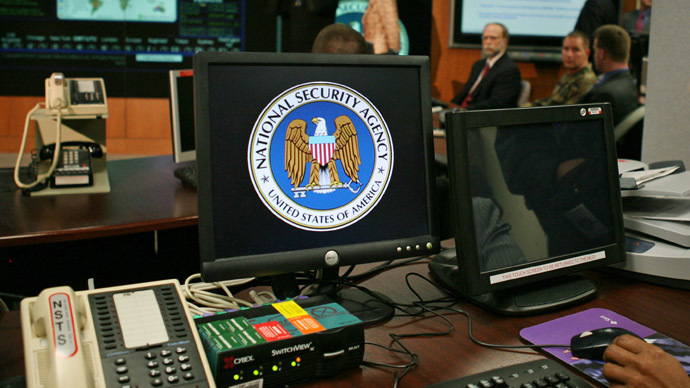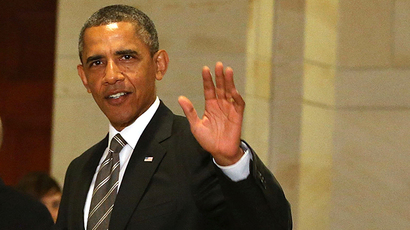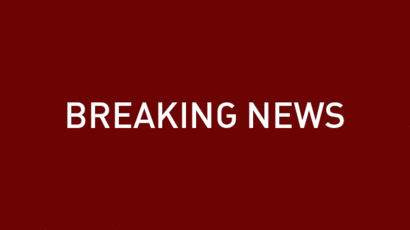Damage control? NSA claims only touches 1.6% of internet traffic

The NSA has alleged it monitors only 1.6 percent of web traffic, contradicting claims of a sweeping spy network. A report released by the White House justifies NSA snooping as essential for national security, but neglects to expand on any details.
The Obama Administration released a seven-page document on Friday
intended to justify the NSA’s mass surveillance programs and
correct media “inaccuracies.” A memo included in the report
alleges that the National Security Agency only “touches”
1.6 percent of the internet and of that figure only 0.025 gets
analyzed by the organization.
"If a standard basketball court represented the global
communications environment, NSA's total collection would be
represented by an area smaller than a dime on that basketball
court," the memo says.
In a move to placate public suspicion in the wake of former CIA
employee’s leak of classified information, the document claims
the Obama Administration has done everything possible to keep the
public informed.
“The administration has provided enhanced transparency on, and
engaged in robust public discussion about, key intelligence
collection programs undertaken by the NSA,” the memo reads.
The White House has been on the defensive since Edward Snowden
released a trove of classified documents that blew the whistle on
the NSA’s spying practices in May. At times the White House’s
rhetoric has been confusing regarding the issue, with Obama
claiming on US TV that there is no domestic spying program, while
ex-Obama adviser Van Jones told CNN “we do have a domestic
spying program.”
According to the documents released by Snowden, the NSA gathers
troves of metadata through internet companies such as Google,
Microsoft and Facebook using a program called PRISM. The leaks
also allege that the NSA used eavesdropping programs to monitor
internet traffic in the EU, provoking furor from the respective
countries’ leaders.
‘Connecting the dots’
Despite claims that the Obama Administration has done everything
in its power to inform the American people, the document contains
almost no information on the NSA mass surveillance. At no point
does it broach the alleged collaboration of internet companies or
the programs used to gather data, such as PRISM. The report
focuses on the legal justification of the NSA’s practices, paying
little heed to the details.
It references the 9/11 attacks and the failure of the Pentagon to
“connect the many dots of information that would have
uncovered the planning and preparation for those attacks.” In
particular, it looks at the involvement of hijacker Khalid
al-Midhar who resided in California for the first six months of
2000. It notes that while the NSA did monitor al-Midhar’s
activities, it did not have the tools to “connect the dots of
the information available.”
Since then several programs have been developed to strengthen the
coordination between agencies to prevent terrorist attacks, the
document writes.
The original cables released by Snowden describe a spy network
that is much larger and farther-reaching than the White House
alleges. The organization reportedly records trillions of phone
calls and emails and can access them at any time.
In response to the leak and criticism the US government has
overstepped the mark with its spying, Obama has promised more
transparency and safeguards against abuse. However, he has
repeatedly argued that the measures are necessary in order to
protect national security.
The NSA claimed to have thwarted over 50 terrorist plots using
its surveillance programs. However, Senators Mark Udall and Ron
Wyden, who serve on the US Senate Select Committee on
Intelligence, questioned this claim in June, saying there was no
concrete evidence to suggest “the NSA's dragnet collection of
Americans' phone records has produced any uniquely valuable
intelligence.”














